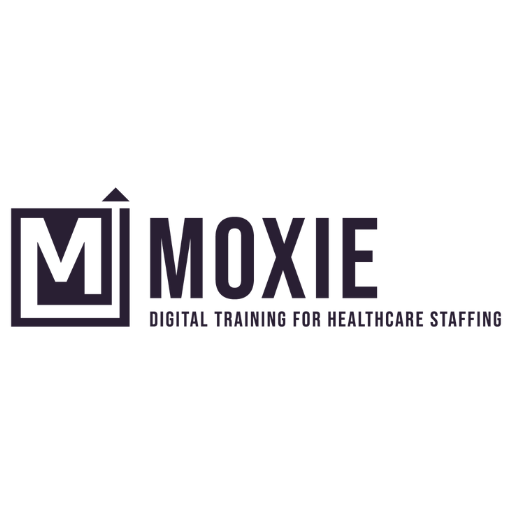By: Shari Dalton
I was hoping that title would catch your attention! Now, before you read this article, I ask that you please try and rid your brain of any biases and be open minded. What I love most about my job now, is that I can really take a step back and view the industry from a very clear and unbiased state. I wanted to share my view of VMS/MSPs.
Take a walk with me down memory lane.
15 years ago, when I first started recruiting, there was no such thing as third party vendors. Agencies would call hospitals directly to acquire contracts and help staff open positions. Most agencies still do this-a direct contract with a hospital is sacred! It often means solid relationships, quicker turnaround times on interviews, no fees to 3rd parties! Oh, those sure were the days!!
Now, let’s take a look at that from the hospitals perspective…a snapshot of a pre-VMS/MSP market: 1 Hospital, 20+ contracts with different agencies (Sometimes more to broaden their candidate searches-remember, they aren’t just hiring nurses, but therapist, allied professionals, physicians, etc.), which also means contact with 20+ people to communicate with about open positions, different bill rates for each agency, different compliance processes for each agency, different time keeping methods for each agency, different, invoicing for each agency.
Seems kind of daunting when you think about it logistically, right? So, I reached out to some friends at different VMS/MSP providers across the country. Here are some great points they brought up about the services they provide to the hospital and the problems they solve for their clients:
1. ONE point of contact for staffing needs. This means that whoever the hospital point person is, only has to communicate with one other person, regardless of how many travelers they staff. One person! Not 20 account managers from 20 different agencies. One person. This also means that when a job opens, the hospital only uploads the job or sends it to their POC and poof-it’s off to 100 agencies!
2. There in ONE portal for ALL of their contingent staffing. This means that when Joint Commission comes to town and wants to do some auditing-it’s all in one place, versus having to keep track of that in email or folders on a desk top. The portal also provides a strong line of defense for agencies squeezing through a traveler that isn’t fully compliant. Yes-this still happens! Hospitals and agencies are so desperate they still try to push travelers through compliance without fully vetting them. Can someone say liability? With a VMS/MSP, they often come with teams of compliance personnel to make sure that travelers are fully vetted before they begin work. You say paperwork headache, I say, if that stranger is caring for my kid, I’m sure glad someone went to great lengths to protect them.
These portals also manage timekeeping and timesheet processes in one place. They provide consolidated invoicing versus the hospital receiving multiple invoices both weekly and monthly.
3. CONSISTENCY! Using a VMS/MSP controls chaos with hiring contingent staff for hospitals. One contract, one set of rates, one compliance process, ONE BILL EVERY MONTH.
4. Budget consciousness. Most VMS/MSP will also help the hospital plan their budgets for contingent hiring. Why is this good? Well, way back when, an ER manager may get desperate and blow their entire budget hiring one nurse when they could have hired 2-3. The VMS/MSP will help not only control those costs to make sure that ER manager stays on budget for the year, but they’ve got multiple avenues to help fill that position. The VMP/MPSs also look at historical hiring trends to help hospital administrators forecast their staffing needs and set budgets.
5. Increased efficiencies. Now I know some of you may balk at this. Yes, there is definitely something to be said for an agency that has a great relationship with a hospital. And yes, back in the day, hospitals would give those agencies first dibs at filling a position…but then what happens when that agency can’t produce? Take a step back-when hospitals have vacancies, they try to fill that position themselves before they ever look to agencies for help. So, let’s say they try to fill the position for 3-4 weeks. Then they reach out to 2-3 of their “top” agencies for help. 1-2 more weeks pass and still nothing. Then they have to rummage through the other contracts to ask for help from 10 other agencies. Do you see where I’m going with this? Now the positions been vacant for almost 2 months. And by the time they find someone it’s going to take 2 weeks to get them started, at least! With a VMS/MSP partnership, the first 3 weeks pass and then the position is opened to multiple agencies to help fill. The hospital has been able to cast a much wider net for candidates. And if the hospitals moves quickly with interviews, they can likely have the position filled by the end of the week. We’ve managed to cut the time in half with this process.
So yes, I get it. If you’re an agency or a traveler, you don’t care for them-they have a hand in the cookie jar and charge money to staff their client facilities. But they also open up doors to facilities that some agencies would have never otherwise been able to staff, which in turn opens up doors to the travelers. Which in turn makes it MUCH easier for travelers to stick with one agency and one recruiter versus bouncing around to where the jobs are.
Yes, they have strict compliance processes, but it’s because they are focused on patient care and protecting the agencies and hospitals from lawsuits that would put them out of business. Did you hear the story about the “nurse” who was teaching and practicing on a geriatric floor who applied for a travel job and the compliance process turned up that this nurse was never a nurse and had just stolen the identity of a nurse? Yeah, that’s why compliance processes are in place.
Traveling in the healthcare staffing industry is not just about the travelers and the agencies who provide them. There is another BIG factor at play here-the hospital. Someone’s got to look out for them too. And remember, the next time you want to be upset about that 3-7% fee, without that VMP/MSP in place, you and your agency may have never had that job to fill to begin with.





